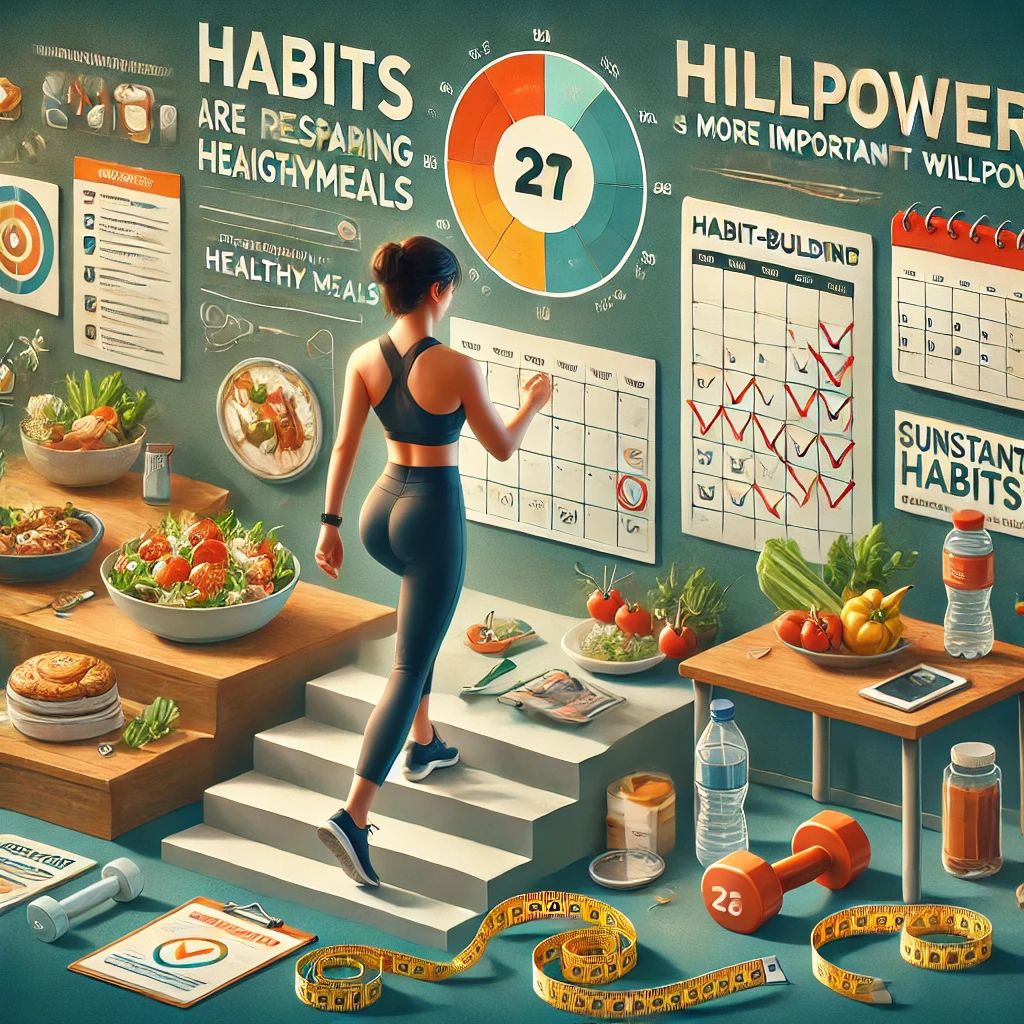
The Role of Willpower in Weight Loss
When it comes to weight loss and fitness, many people believe that willpower is the key to success. However, relying solely on willpower can often lead to burnout, frustration, and failure. Willpower is a finite resource, meaning that it depletes over time, especially when faced with constant temptation, stress, or fatigue. While willpower is important for making initial changes, the true key to long-term success lies in building healthy habits that become part of your daily routine.
Why Habits Matter More Than Willpower
Habits are behaviors that become automatic over time. Once a habit is formed, it requires less conscious effort and decision-making, making it easier to maintain a healthy lifestyle without constantly relying on willpower. Here’s why habits play a more significant role in long-term weight loss and fitness success:
1. Habits Reduce Decision Fatigue
Relying on willpower means constantly making choices—what to eat, whether to exercise, how to resist cravings. Over time, this decision-making process can lead to decision fatigue, making it harder to stick to your goals. Habits, on the other hand, remove the need for daily decision-making because they become automatic:
2. Habits Build Sustainable Change
Willpower may help you start a new diet or exercise plan, but habits create sustainable change that leads to long-term success:
3. Habits Are More Resilient to Stress
Life is full of stressors—work, family, and unexpected challenges can deplete your willpower and make it harder to stick to your fitness and weight loss goals. Habits, however, are more resilient to stress because they are ingrained in your daily routine:
How to Build Habits for Weight Loss and Fitness
If willpower isn’t enough, how can you build habits that support your weight loss and fitness goals? Here are some practical strategies to help you create lasting habits:
1. Start Small and Be Consistent
One of the most effective ways to build habits is by starting with small, manageable actions and repeating them consistently:
2. Create Triggers for Your Habits
Habits are often linked to specific triggers or cues that remind you to perform the behavior:
3. Track Your Progress and Celebrate Small Wins
Tracking your habits can help reinforce the behavior and provide motivation to continue:
4. Be Patient and Persistent
Building habits takes time and effort, so it’s important to be patient with yourself during the process:
Conclusion: Build Habits, Not Just Willpower
While willpower can help you get started on your weight loss and fitness journey, it’s the habits you build that will lead to long-term success. By focusing on small, consistent actions, creating triggers for your habits, and celebrating your progress, you can establish sustainable behaviors that require less effort over time. Ultimately, it’s the habits you create, not just your willpower, that will help you achieve and maintain your fitness and weight loss goals.


